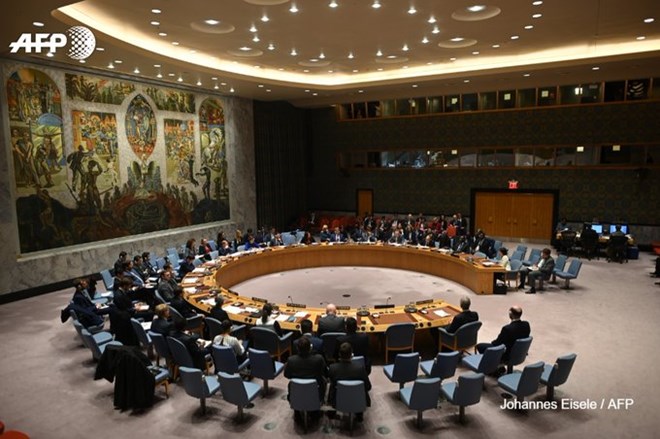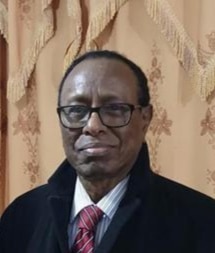
First Election in the country that gave Somali people a wide measure of self-government and autonomy. A profile of those called to administer the domestic affairs of the country
by Mohamed I. Trunji
Wednesday, July 08, 2020
In 1956, four years ahead of the end of the trusteeship mandate, the territory’s progress towards self-government had proceeded at a speedy pace, with a view to preparing the territory for full independence by the target date of December 1960. In fact, a political development of considerable significance took place with the establishment in 1956 of the first five-member Somali government, enjoying very wide powers with regard to internal administration of the territory (Legge n° 1 Maggio 7, 1956)
Abdullahi Issa Mohamoud, former Lega envoy to the United Nations and known for his strong opposition to the Italian return to Southern Somalia as Administering Authority, was designated as Prime Minister. The formation of the government represented a turning point in the hitherto uneasy relations between the major political party in the territory and the Italian Trusteeship Administration. “By the time Abdullahi Issa assumed the office of Prime Minister, little trace remained of the earlier antagonism between the Administration and the Lega; a good working basis had now been reached between the two sides”. (I.M. Lewis, 2002)
The Legislative Assembly decided to limit the number of ministries to five: Domestic Affairs, Social Affairs, Economic Affairs, Financial Affairs and General Affairs. The government was composed of the Prime Minister, selected from the majority party in the Legislative Assembly, and ministers appointed by the Administrator, all from the ruling party, the Lega dei Giovani Somali (LGS). A proposal for multi-party cabinet so that other parties could gain experience in executive responsibility advanced by Aden Abdulla, in his capacity as President of the party, fell short of being endorsed by the party Congress. The proposal was voted down because the party “felt that to bring in the Hisbia Dighil Mirifle party (HDM) would imply an acceptance of tribalism.”(Castagno). Behind the nationalist facade, the composition of the government was clearly based on clan logic, but not every Somali clan was represented. The HDM, for instance, with 13 MPs, representing the population in the fertile and agriculturally developed inter-riverine areas were not given ministerial positions, and the party leaders immediately accused the government of favouratism towards the nomads.
The programme presented to the Legislative Assembly centered mainly on domestic issues, foreign policy being still outside its purview. Immediate attention was given to the precarious economy of the territory, with particular emphasis on the fields of agriculture, livestock and small industry, and on the attraction of foreign capital and aid. The long-standing question of the script for the Somali language also received attention. Regarding social affairs, the government pledged to find ways of introducing full universal suffrage, with the inclusion of women. The latter move was met with strong opposition by conservative elements in the Legislative Assembly who saw as un-Islamic any form of female emancipation, including voting rights. To win support from Parliament, the Prime Minister went into detail, explaining the benefits of granting women the right to vote and citing examples of a number of Islamic countries where women already did enjoy that right. The government obtained the confidence of the Legislative Assembly by 44 against 10 votes on October 3, 1956. (Corriere della Somalia, Ottobere 4, 1956)
Unsurprisingly, those appointed as ministers were ill-prepared in terms of educational credentials and professional experience. In fact, none of the new ministers, including the Prime Minister, had any formal education or administrative experience. Before entering politics, they were small businessmen, propelled to power by sheer ability. Given that the Legislative Assembly was composed largely of uneducated old-timers, it was indeed difficult to find anyone with even pretence of the capability required of a minister. As a result, “when the Administrator decided to form a Somali government, it was with difficulty that six Somali members of the Legislative Assembly could be found, sufficiently capable to begin on the task of becoming Ministers: and if they resigned, today, it would prove almost impossible to find another six”, comments a British source in Mogadiscio (TNA FO 371/125675 January 4, 1957). None of the ministers knew what the job of a minister was. As a result, for the first few months, the former Italian directors, operating as advisors, continued to run the departments. To each Somali minister a personal advisor was appointed. (Decreto amministrativo del 7 maggio 1956 n° 7). The advisors would attend the meetings of the Council of Ministers, without the right to vote. Later on, in 1957, the advisors were replaced by Italian experts reporting directly to their Somali superiors. Somali cabinet ministers were heavily dependent on substantial advice, but this did not interfere with their independence of decision. The experts would do all the work and simply get the ministers to put their signatures on the papers. Attempts to appoint technocrats as ministers were strongly discouraged by the Administration on the grounds that such a move may adversely affect the efficiency of the public administration. (Corriere della Somalia, Maggio 9, 1956)
However, the shortcomings referred to above withstanding, the Somali Ministers became successful in fulfilling the difficult duties placed on the shoulders. With the election of the Legislative Assembly, which supplanted the Territorial Council, and the establishment of the Somali government in 1956 , the Somali people acquired a wide measure of self-government and autonomy, consistent with the undertaking assumed by the Administering Authority to “foster the development of free political institutions and promote the development of the inhabitants of the Territory towards independence and give to the inhabitants of the Territory a progressively increasing participation in the various organs of government”.
In the same year, three other important steps were taken: (a) dissolution and repatriation of the ‘Corpo di Sicurezza’ (the Italian troops sent to Somalia in 1950 to replace the British colonial troops) resulting in the incorporation of the Somali components of the force into the police force; (b) establishment of the Somali Police Force under the command of Lt. Colonel Umberto Ripa di Meana (Decreto n° 19 Gennaio 1, 1956), and (c) enactment of new judicial regulations, known as ‘Ordinamento Giudiziario.
Following the political elections held in 1959, the second in the territory, the Congress of the ruling party adopted a resolution rejecting the idea of forming a coalition government on the basis of Aden Abdulla’s repeated proposal. (Diary May 19, 1959).
A broad-based government was formed, under the premiership again of Abdullahi Issa. It was in that occasion that, for the first time, Dighil Mirifle members of the Legislative Assembly were included in the government. However, they were urged to abjure their HDM allegiance and join the ruling party in exchange for ministerial position. This policy has badly weakened the democratic and multiparty system the Administration envisaged to establish in the country. Under these circumstances, a number of prominent HDM leaders, including the President and the Secretary-General of the party, joined the ruling party and were appointed Ministers. The first to leave the party was Abdinour Mohamed Hussein who became Minister in 1959, followed, a year later, by the Secretary-General, Abdulkadir Mohamed Aden “Zoppo” who became Minister in 1960. With most of the legendary ‘founding fathers’ repudiating their party, its role and its importance as a credible opposition force gradually diminished. In fact, in the fourth and last general elections of 1969, the party gained a mere 3 seats..
